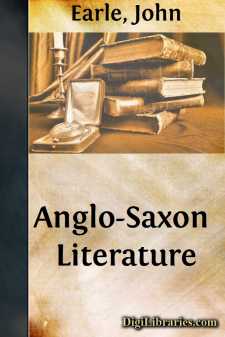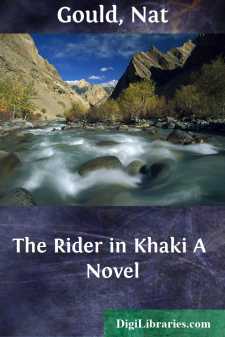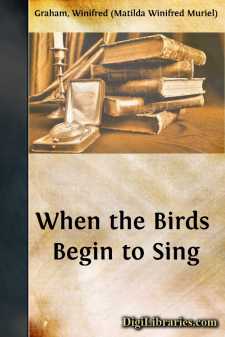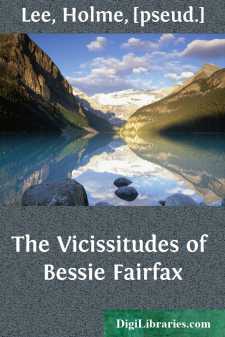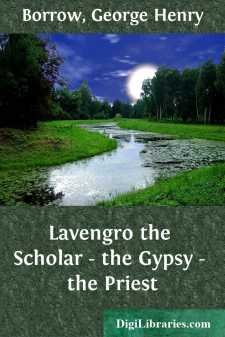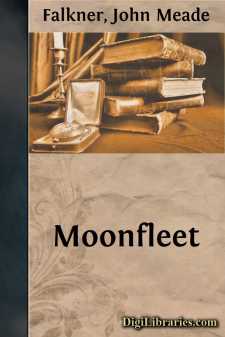Literary Collections
- American 84
- Ancient, Classical & Medieval 14
- Asian 1
- Australian & Oceanian 1
- Canadian 55
- Continental European 121
- English, Irish, Scottish, Welsh
- Essays 160
- General 24
- Letters 46
- Middle Eastern 1
English, Irish, Scottish, Welsh Books
Sort by:
by:
John Earle
CHAPTER I. A PRELIMINARY VIEW. Anglo-Saxon literature is the oldest of the vernacular literatures of modern Europe; and it is a consequence of this that its relations with Latin literature have been the closest. All the vernacular literatures have been influenced by the Latin, but of Anglo-Saxon literature alone can it be said that it has been subjected to no other influence. This literature was nursed...
more...
by:
Nat Gould
CHAPTER I "WILL HE MARRY HER?" "Do you think he will marry her?" asked Harry Morby. "Does anybody know what he will do," replied Vincent Newport, discussing their host Alan Chesney, of Trent Park, a beautiful estate in Nottinghamshire, close to the Dukeries, Sherwood Forest, and the picturesque village of Ollerton. In the billiard room they had just finished a game of a hundred...
more...
CHAPTER I. She was certainly very pretty, and just then she looked prettier than usual, for the sharp run had brought a more vivid colour to the cheek, and an added sparkle to the eye. She was laughing, too—the rogue—as well she might, for had she not brought her right hand swiftly down upon his left ear when he had chased her, caught her, and deliberately and maliciously kissed her, and did he not...
more...
by:
Holme Lee
CHAPTER I. The years have come and gone at Beechhurst as elsewhere, but the results of time and change seem to have almost passed it by. Every way out of the scattered forest-town is still through beautiful forest-roads—roads that cleave grand avenues, traverse black barren heaths, ford shallow rivers, and climb over ferny knolls whence the sea is visible. The church is unrestored, the parsonage is...
more...
by:
William Carleton
CHAPTER I. One evening in the beginning of the eighteenth century—as nearly as we can conjecture, the year might be that of 1720—some time about the end of April, a young man named Lamh Laudher O'Rorke, or Strong-handed O'Eorke, was proceeding from his father's house, with a stout oaken cudgel in his hand, towards an orchard that stood at the skirt of a country town, in a part of the...
more...
NOTES UPON GEORGE BORROW. I. Borrow as a Splendid Literary Amateur. There are some writers who cannot be adequately criticised—who cannot, indeed, be adequately written about at all—save by those to whom they are personally known. I allude to those writers of genius who, having only partially mastered the art of importing their own individual characteristics into literary forms, end their...
more...
by:
George Meredith
CHAPTER I. ABOVE BUTTONS Long after the hours when tradesmen are in the habit of commencing business, the shutters of a certain shop in the town of Lymport-on-the-Sea remained significantly closed, and it became known that death had taken Mr. Melchisedec Harrington, and struck one off the list of living tailors. The demise of a respectable member of this class does not ordinarily create a profound...
more...
CHAPTER 1 IN MOONFLEET VILLAGE So sleeps the pride of former days—More The village of Moonfleet lies half a mile from the sea on the right or west bank of the Fleet stream. This rivulet, which is so narrow as it passes the houses that I have known a good jumper clear it without a pole, broadens out into salt marshes below the village, and loses itself at last in a lake of brackish water. The lake is...
more...
by:
Ian Maclaren
A SUPRA-LAPSARIAN Jeremiah Saunderson had remained in the low estate of a "probationer" for twelve years after he left the Divinity Hall, where he was reported so great a scholar that the Professor of Apologetics spoke to him deprecatingly, and the Professor of Dogmatics openly consulted him on obscure writers. He had wooed twenty-three congregations in vain, from churches in the black country,...
more...
by:
Martin Ross
CHAPTER I "Christian, dost them see them?" sang an elder brother, small enough to be brutal, large enough to hurt, while he twisted Christian's arm as though it were indeed the rope that it so much resembled. "I won't say I saw them, because I didn't!" replied Christian, who had ceased to struggle, but was as far as ever from submission; "but if I had, you might twist...
more...


